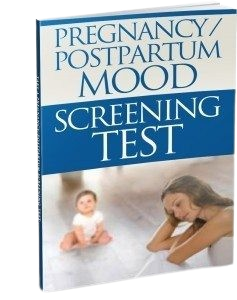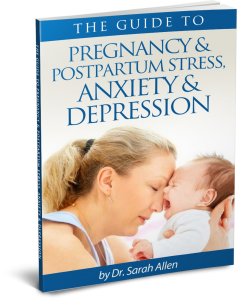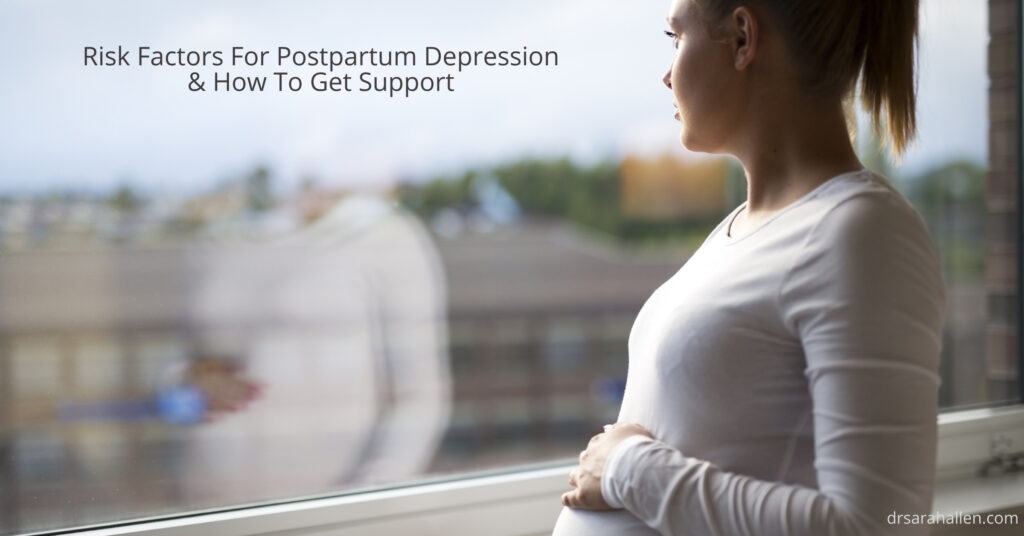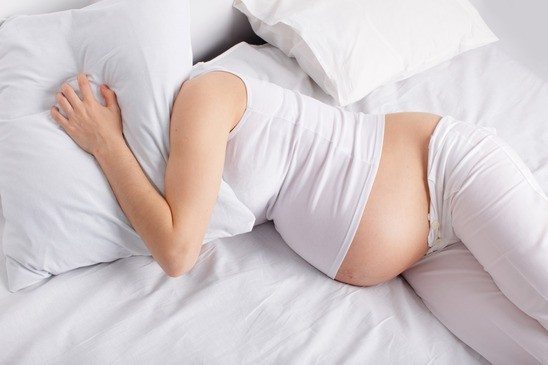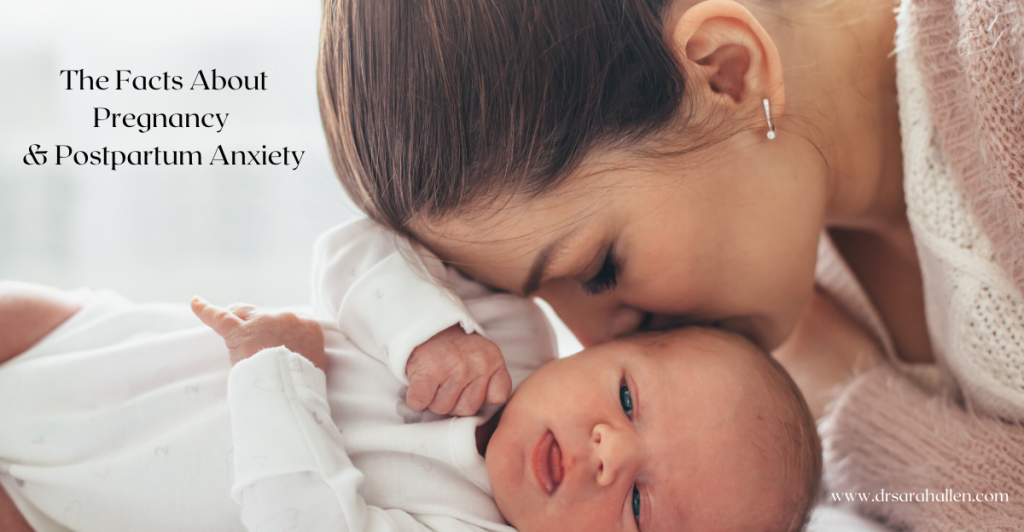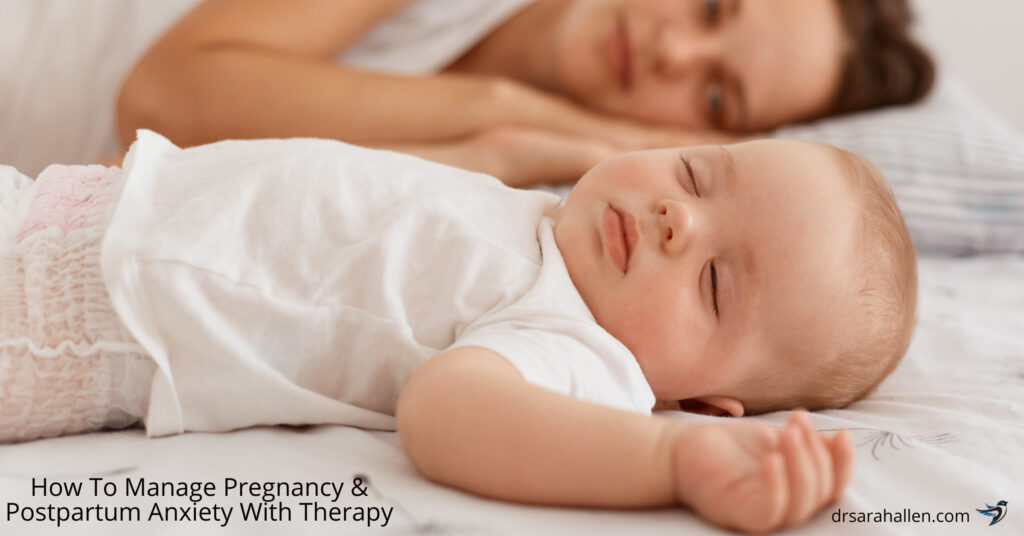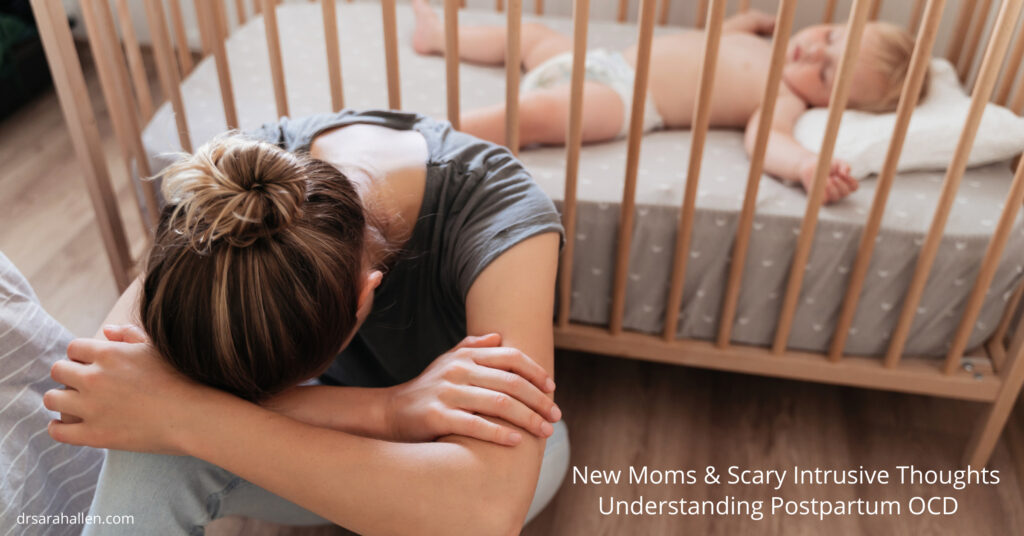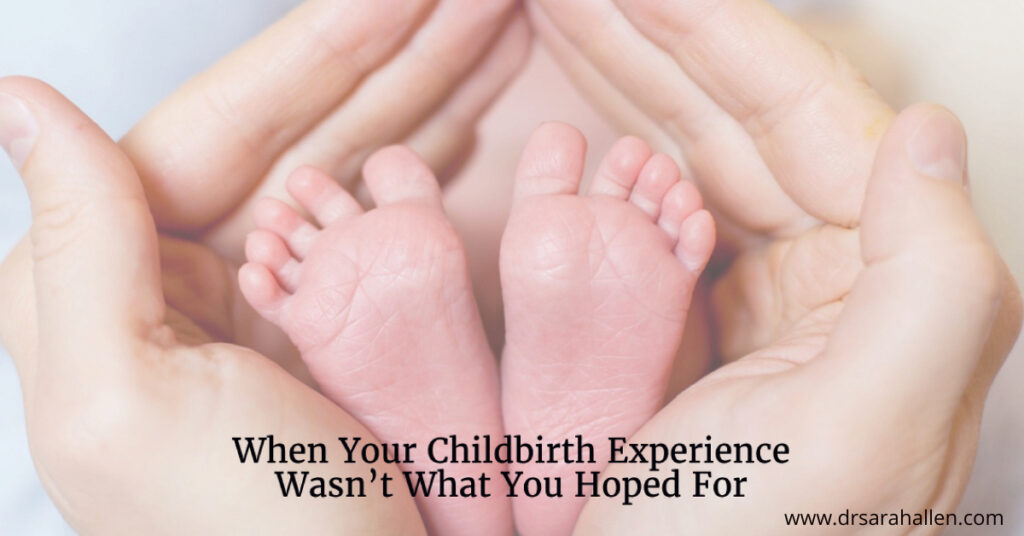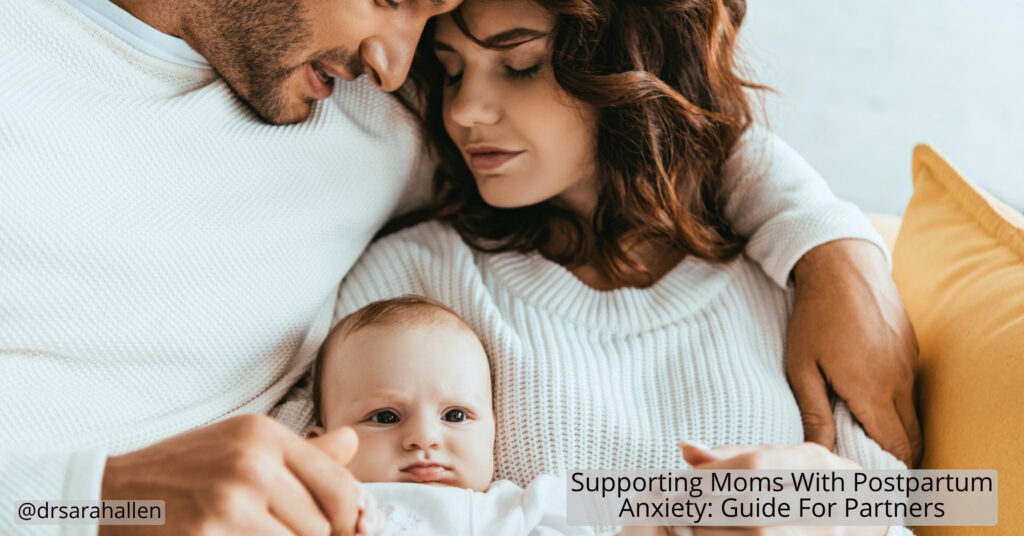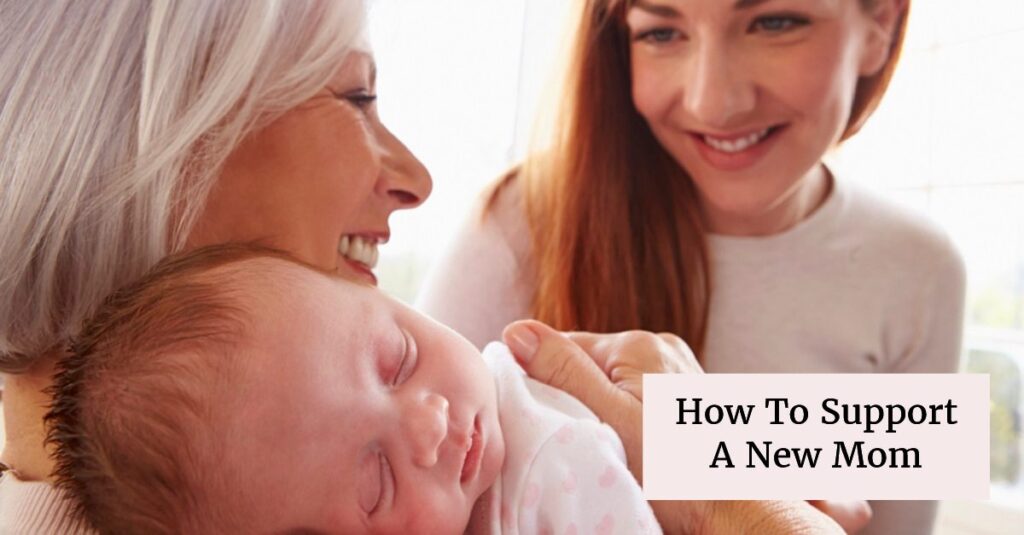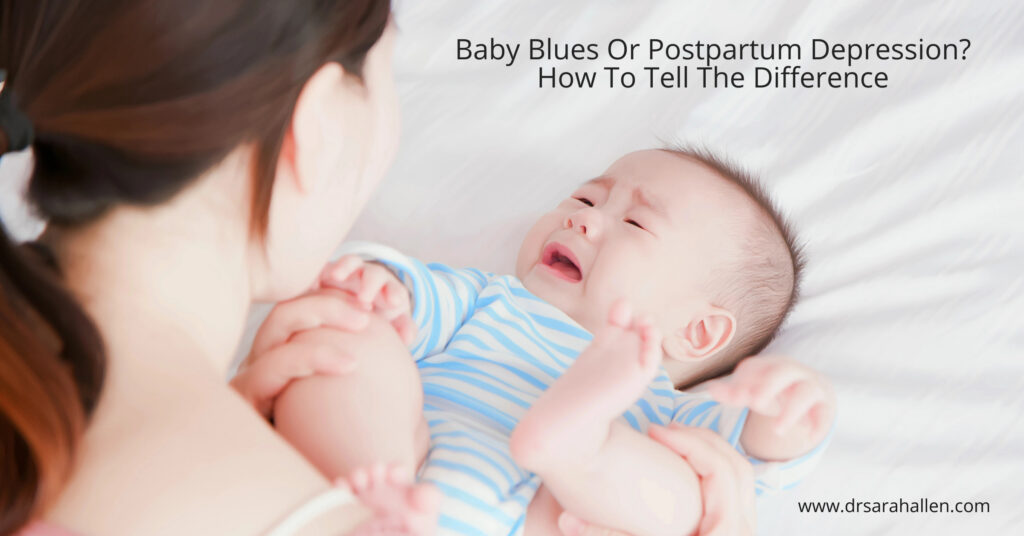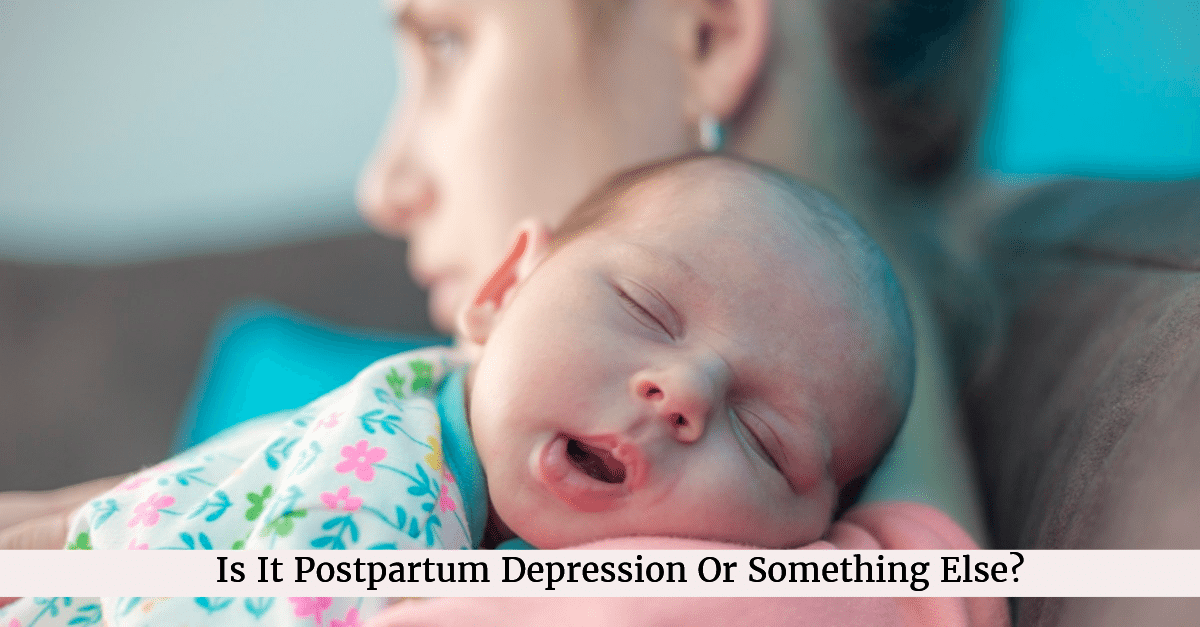
Types of Pregnancy & Postpartum Mood Disorders
In this article, which is a chapter from my free downloadable booklet called A Guide To Pregnancy & Postpartum Stress, Anxiety & Depression, I describe the different symptoms and types of mood disorders that can happen either during pregnancy or after having a baby. The most commonly known is Postpartum Depression but there are other conditions you may be experiencing and it is important to get the correct diagnosis for treatment to be most effective.
I have worked with new moms for over twenty years and we used to think that maternal depression only happens postpartum (after the baby is born) and we concentrated on treating Postpartum Depression (PPD).
But more recent research in the past decade has showed us that many women experience these symptoms during pregnancy too. Contrary to popular belief, pregnancy does not protect women from getting depressed. Approximately 15% of women experience significant emotional problems during pregnancy too.
Once studies stated looking in more depth we also realized that it is not just depression symptoms either, pregnant and postpartum women can also experience anxiety, obsessional compulsive disorder (OCD) which often focuses on some type of harm coming to the baby and post-traumatic stress (PTSD) if they have a difficult birth experience.
We now have a name that covers all the symptoms that women may experience during pregnancy and postpartum – Perinatal Mood Disorders (or PPMDs) and we know between 10 – 20 % of women can experience them.
Remember though that is only the percentage of women who are reporting it. Many women feel unnecessary guilt and shame and do not want to tell anybody how they feel, so it is probably a much higher percentage!
During Pregnancy

Women are just as likely to experience significant anxiety and/or depression in during pregnancy as they are after having a baby (approx. 15%). Read the specific sections about depression and anxiety below to find out more information on symptoms.
Postpartum or Baby ‘Blues’
The “blues” affects 60-80% of all new mothers and often includes frequent and prolonged crying, anxiety, irritability, poor sleep, quick mood changes and a sense of vulnerability. It usually occurs within the first three days following birth, continues for a couple of weeks and goes away on its own. Read more about the baby blues; what it is, why it happens and what helps.
Pregnancy & Postpartum Depression
Pregnancy Depression (also called antenatal or prenatal depression) and Postpartum Depression (PPD) affects between 15-20% of all new mothers.
Symptoms are characterized by lack of despondency, tearfulness and intense feelings of inadequacy, guilt, anxiety and fatigue. There may also be physical symptoms such as headaches and rapid heart rate and moms may feel disconnected from the baby.
Symptoms differ for everyone but might include any of the following:
- Crying and sadness
- Loss of interest, joy or pleasure in things you used to enjoy
- Feelings of anger or irritability
- Lack of interest in the baby
- Appetite and sleep disturbance
- Feelings of guilt, shame or hopelessness
- Possible thoughts of harming the baby or yourself
These feelings can appear any time during the first few months to one year after the birth.
For more information about Pregnancy Depression read The Truth About Pregnancy During Depression and for tips for coping read 10 Tips For New Moms About Pregnancy & Postpartum Mood Disorders
Pregnancy & Postpartum Anxiety

Approximately 6% of pregnant and 10% of new moms experience anxiety. Let’s start with pregnancy. Pregnant women get a lot of advice about what they should do or not do from family, friends and social media. It can make everyone a little paranoid about what not to eat, do etc… The process of trying to get pregnant, fear of miscarriage, especially if there is a previous loss and what is going to happen to your life once this baby arrives can all cause anxiety or exacerbate pre-existing anxiety.
When the baby arrives every new parent worries that they don’t really know what they are doing and somehow, inadvertently, they may do something, or not do something, that causes harm to their baby. These little humans are totally vulnerable and now you are responsible for it! This can be scary sometimes but these worries are totally normal and everyone gets them occasionally.
But postpartum anxiety is more intense and persistent than typical new parent concerns. If you have any of the symptoms below for most of the day, you probably have postpartum anxiety.
- Racing thoughts
- Worrying
- Lack of concentration
- Restlessness
- Sleep disturbance
- Irritability
- Physical tension
- No appetite
Panic attacks are like anxiety multiplied by 10. They have a sudden onset and are accompanied by intense fear of something bad happening.
Physical symptoms include shortness of breath, chest pain, dizziness, heart palpitations (people often think they are going to have a heart attack), sweating and gastrointestinal upset.
Emotionally you may feel that you are going to somehow lose control, go crazy and may start to avoid situations where you have experienced panic attacks for fear of one happening again.
Panic attacks seem to go in waves, but it is important to know that they will pass and will not hurt you and there are techniques to calm your mind and body down.
(For a more detailed post about pregnancy & postpartum anxiety read The Facts About Pregnancy & Postpartum Anxiety)
Postpartum Post-Traumatic Stress Disorder (PTSD) Following Childbirth

When childbirth or the time frame just before or after labor is seen as traumatic, women can develop PTSD like symptoms. Affecting up to 6% of mothers, the traumas can include women feeling that either their life or the life of their baby is at risk during the labor or shortly thereafter.
Symptoms of postpartum PTSD might include intrusive re-experiencing of a past traumatic event (which in this case may have been the childbirth itself), flashbacks or nightmares, avoidance of stimuli associated with the event, persistent increased arousal (irritability, difficulty sleeping, hyper-vigilance, exaggerated startle response), anxiety and panic attacks, and feeling a sense detachment.
Women who have experienced a previous trauma, such as rape or sexual abuse, are also at a higher risk for experiencing postpartum PTSD. I have done research on PSTD and childbirth and worked with many women who have experienced it. It is important to recognize that this is different than Postpartum Depression so treatment can be tailored effectively.
(For a detailed post about Postpartum PTSD read When Your Childbirth Experience Wasn’t What You Hoped For)
Postpartum OCD
Postpartum Obsessive-Compulsive Disorder (OCD) is one of the scariest and under-diagnosed of the perinatal mood disorders. It is estimated that as many as 3-5% of new mothers will experience symptoms such as obsessions (also called intrusive thoughts) which are persistent thoughts or images often relating to harm coming to the baby and compulsions to do certain things again and again to reduce her fears (called compulsions).
The thoughts, images or visions can be really horrific and seem very real. Women tend to not tell anyone they have these thoughts for fear of what others may think of them. When we keep thoughts in our head though, they grow more severe and even more frequent.
The moms with OCD know that their thoughts are bizarre and are very unlikely to ever act on them but are still fearful of being alone with the baby.
Postpartum Psychosis
Postpartum Psychosis or PPP (found in 0.1% of new mothers) is a serious, but relatively rare disorder, with reactions such as extreme confusion, refusal to eat, delusions or strange beliefs, auditory hallucinations (seeing or hearing things that aren’t there), feeling very irritated & hyper, decreased need for or inability to sleep, paranoia and suspiciousness and rapid mood swings. Most of these reactions occur within 3-14 days following the birth.
You can see that PPP is very different and much more severe than having the anxiety-provoking horrible thoughts that women with postpartum OCD have. In a psychotic state, a woman’s delusions and beliefs make total sense to her (but would be irrational to others) and feel very meaningful. Risk factors for PPP are a family history or previous personal history of psychosis or bipolar. Treatment needs to be immediate and requires hospitalization.

If you would like to read more of my Pregnancy & Postpartum related articles please click Dr. Allen’s Pregnancy & Postpartum Blog

Dr. Sarah Allen has 25+ years of experience in private practice helping women to transition to being the mom they want to be. She is the Founding Director of the statewide non-profit Postpartum Depression Alliance of IL. She also specializes in pregnancy loss & infertility & has published research on postpartum depression and traumatic childbirth.
If you would like to work with Sarah, please phone her at 847 791-7722 or on the form below.
If you would like to read more about me and my areas of specialty, please visit Dr. Sarah Allen Bio. Dr. Allen’s professional license only allows her to work with clients who live in IL & FL & the UK and unfortunately does not allow her to give personalized advice via email to people who are not her clients.
Dr. Allen sees clients in person in her Northbrook, IL office or remotely via video or phone.

What Can I Read That Helps Me While I Am Waiting For My First Appointment With Sarah?
If you feel that you may be experiencing pregnancy or postpartum mood disorder, or worry that you may be at risk of developing it, please download my free booklets below.
See each specific webpage to download one or many.
